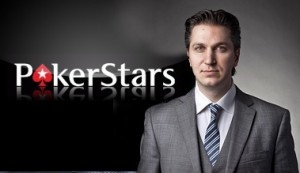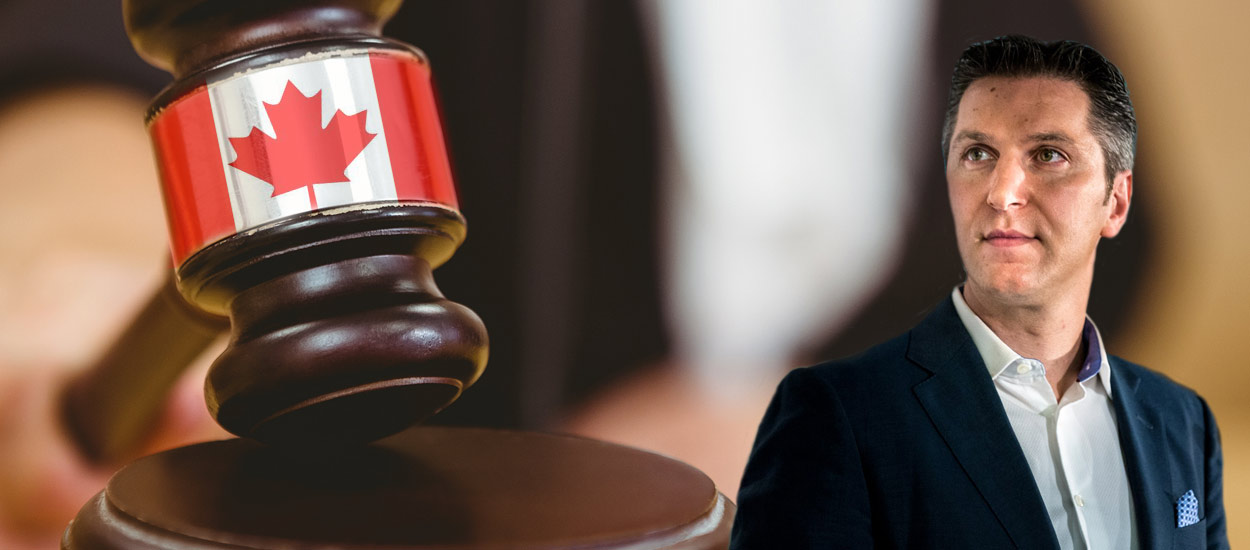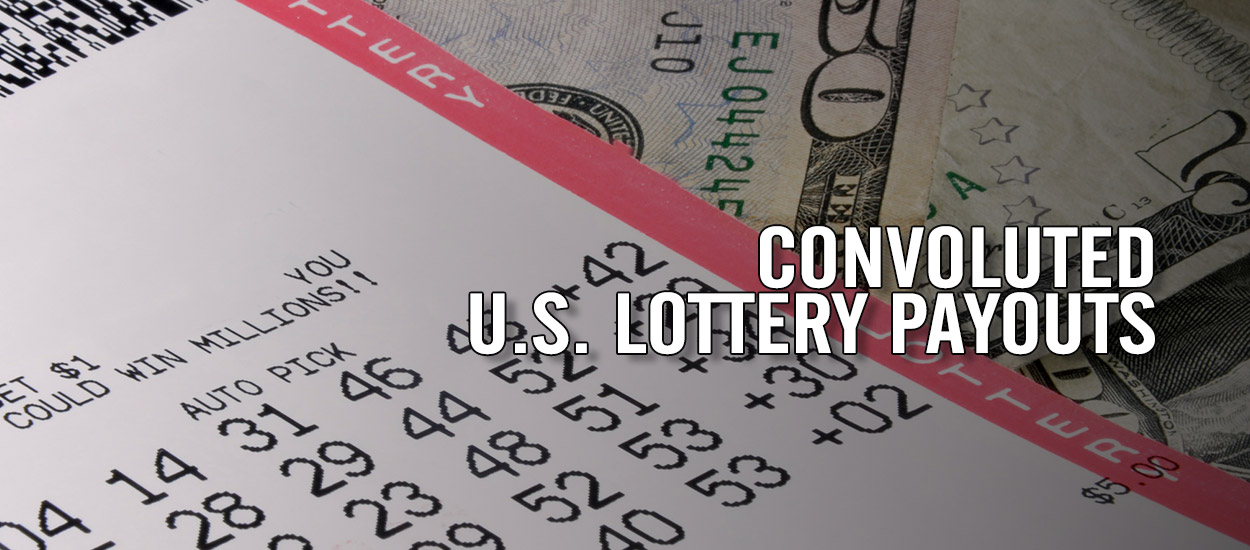Lawsuit by former Amaya CEO may set precedent and open the door for additional litigation
Last month David Baazov sued the Quebec Securities Regulatory Authority, Autorité des marchés financiers (AMF), for $2 million claiming malicious and abusive practices. AMF charged Baazov and other Amaya Gaming employees in 2016 with securities fraud, claiming the company tried to influence the price of Amaya shares prior to the purchase of PokerStars by Amaya for $4.9 billion. But a Quebec judge threw out those charges last year stating that AMF were negligent and showed lack of rigor by illegally obtaining information they were not allowed to see and attempting to confuse the defense. AMF considered appealing but chose not to. Consequently, Baazov sued AMF for malicious prosecution saying the charges against him were never founded and all the actions of AMF were malicious and an abuse of power. He also said should he win the case he will donate the money to charities. AMF said they will defend themselves vigorously.
The suit had me wondering whether Baazov had any real grounds for his lawsuit. It also had me curious whether any other gambling operators who were charged over the last two decades had a reason to sue the U.S. or any state governments for similar abuses. In particular I thought about Jay Cohen (WSEX), the NETeller founders and David Carruthers (BETonSPORTS).
I spoke to Larry Walters, a first amendment attorney specializing in online gambling, and asked him if he could explain what is involved in a malicious prosecution case, understanding there are some differences between Canadian and American law.
"Criminal defendants who are successful in defending their claims can potentially sue federal officials who violated their constitutional rights. These claims are recognized under the Federal Torts Claims Act and Bivens v. Six Unknown Narcotics Agents, 403 U.S. 388 (1971). Such claims can be based on malicious prosecution, assault, battery, false imprisonment, and other acts that violate one or more constitutionally-protected rights. Judges and prosecutors enjoy absolute immunity for their acts. Claims against arresting officers and investigators are possible, in appropriate circumstances. Suits for damages against the federal government, itself, are typically barred on immunity grounds, although some claims are permitted for injunctions or recovery of attorney’s fees.
Winning a damages claim against federal officials can be challenging, given the concept of ‘qualified immunity.’ Only where the official violates clearly-established law will recovery be permitted. Therefore, even if the claimant can show that his or her rights were violated, the defendant can win on immunity grounds unless the claimant can show that a constitutional violation was recognized in the same or similar instances, in the past.
In order to state a claim for malicious prosecution, the claimant must show that the proceeding terminated in his or her favor. That usually means an acquittal or complete dismissal of the charges. For the claim to be successful, there must also be a showing of “malice” in making the arrest or launching the investigation. Sometimes we also see claims for “abuse of process” which occurs when a legal proceeding is commenced for some illegitimate purpose. While all these claims are theoretically possible for a winning criminal defendant, they are difficult to prove in all but the most egregious cases. The law tends to be very protective of the government in this area." So first looking at the Amaya case, it’s clear that Baazov has reasonable grounds for his suit. AMF laid 23 charges against David Baazov, Benjamin Adhoot, Yoel Altman and three companies for securities fraud after launching an investigation into the purchase of PokerStars and, as required, AMF released 16 million documents related to the investigation. But AMF then told the defense attorney to stop examining the documents sent to them since many fell outside the relevant period and may have had nothing to do with the purchase of the world’s largest online poker company. The courts also found that AMF examined documents from Amaya’s external auditors that they didn’t have privilege to see and the AMF examined six million documents related to Benjamin Adhoot’s defense that they weren’t entitled to see. As well the AMF asked for over 300,000 documents to be quarantined, since those documents had evidence that may exonerate the accused. So, in better words, the AMF was playing a shell game likely hoping that by releasing documents and hiding others it would confuse the defense. And when I spoke to people connected to Amaya at the time of the original charges, I was told that the AMF was grasping at straws since they had nothing. But they didn’t want to give up the high-profile securities case, so AMF proceeded with the charges anyways hoping something would eventually materialize.
So first looking at the Amaya case, it’s clear that Baazov has reasonable grounds for his suit. AMF laid 23 charges against David Baazov, Benjamin Adhoot, Yoel Altman and three companies for securities fraud after launching an investigation into the purchase of PokerStars and, as required, AMF released 16 million documents related to the investigation. But AMF then told the defense attorney to stop examining the documents sent to them since many fell outside the relevant period and may have had nothing to do with the purchase of the world’s largest online poker company. The courts also found that AMF examined documents from Amaya’s external auditors that they didn’t have privilege to see and the AMF examined six million documents related to Benjamin Adhoot’s defense that they weren’t entitled to see. As well the AMF asked for over 300,000 documents to be quarantined, since those documents had evidence that may exonerate the accused. So, in better words, the AMF was playing a shell game likely hoping that by releasing documents and hiding others it would confuse the defense. And when I spoke to people connected to Amaya at the time of the original charges, I was told that the AMF was grasping at straws since they had nothing. But they didn’t want to give up the high-profile securities case, so AMF proceeded with the charges anyways hoping something would eventually materialize.
If all these facts are indeed proven true then Baazov can and should win his lawsuit. The AMF violated his constitutional rights in various ways, they acted maliciously by continuing to seek charges after they realized they had no viable case and they acted with abuse of process by constantly trying to view documents they had no privilege to see.
As for the others I mentioned Lawrence Walters made it clear they couldn’t sue the government because it passed the statute of limitations and because they all pleaded guilty. Consequently, you can’t sue for malicious prosecution if you admit guilt. Still it begs the question whether the U.S. government had overstepped its boundaries in prosecuting those individuals and it also raises the question whether these individuals connected to the gambling industry could appeal for a pardon on the basis of abuse of power.
The NETeller Case
Steve Lawrence, a founder of NETeller, a British based payment company, was arrested in the U.S. Virgin Islands while on vacation and the other founder John Lefebvre was arrested in California in 2007 while at his home. They were charged with money laundering, racketeering and promoting illegal gambling. They pled guilty, paid a fine and served 45 days in a minimum-security jail. They also made a statement that they knew what they were doing was against the law. People close to the NETeller case I spoke to at the time said that last admission of guilt was always asked for by the DoJ because the government wanted to make sure they couldn’t be sued later for abuse of power. NETeller, as one might recall, was doing nothing wrong. Contrary to the charges laid against them, NETeller was not involved in gambling, but simply offered an e-Wallet solution to deposit to gambling companies as well as making person-to-person transfers. There was nothing on the books prior to October 2006 that made it illegal to process payments for gambling. The only U.S. law that made it illegal to process transactions for gambling was the UIGEA which did not pass until October 2006. Lefebvre and Lawrence, both Canadian citizens had already resigned from the company prior to the passing of the UIGEA, but the current management of NETeller at the time chose to keep the company operating until January when the DoJ shut them down. So, if the DoJ had any case, it was against the operators of NETeller, after October 2006, who decided to keep allowing transfers for gambling until January 2007. But those making that decision weren’t Lefebvre and Lawrence. Instead it was businessmen in the UK. Not surprisingly the U.S. government was leery of launching charges against operators residing and operating from the UK for fear of international repercussions, so they arrested the Canadian founders instead. And the meager 45-day sentence was evidence the DoJ knew full well they had a weak case. Arguably those charges were nothing more than a ploy by the DoJ to issue a warning to others about the UIGEA. Instead of charging those who were responsible for continuing to take U.S. deposits after the passage of the law, they chose to go after the low hanging fruit that really had no way to fight back. NETeller is now a major e-Wallet solution for legal gambling in New Jersey, which only goes to prove that the charges against them were bogus and malicious to begin with.
Contrary to the charges laid against them, NETeller was not involved in gambling, but simply offered an e-Wallet solution to deposit to gambling companies as well as making person-to-person transfers. There was nothing on the books prior to October 2006 that made it illegal to process payments for gambling. The only U.S. law that made it illegal to process transactions for gambling was the UIGEA which did not pass until October 2006. Lefebvre and Lawrence, both Canadian citizens had already resigned from the company prior to the passing of the UIGEA, but the current management of NETeller at the time chose to keep the company operating until January when the DoJ shut them down. So, if the DoJ had any case, it was against the operators of NETeller, after October 2006, who decided to keep allowing transfers for gambling until January 2007. But those making that decision weren’t Lefebvre and Lawrence. Instead it was businessmen in the UK. Not surprisingly the U.S. government was leery of launching charges against operators residing and operating from the UK for fear of international repercussions, so they arrested the Canadian founders instead. And the meager 45-day sentence was evidence the DoJ knew full well they had a weak case. Arguably those charges were nothing more than a ploy by the DoJ to issue a warning to others about the UIGEA. Instead of charging those who were responsible for continuing to take U.S. deposits after the passage of the law, they chose to go after the low hanging fruit that really had no way to fight back. NETeller is now a major e-Wallet solution for legal gambling in New Jersey, which only goes to prove that the charges against them were bogus and malicious to begin with.
Jay Cohen
The second person, Jay Cohen, from the now defunct World Sports Exchange was charged by Janet Reno in 1999 as part of a series of arrests against offshore operators for violating the Wire Act. Reno said that gambling operators couldn’t hide online and they couldn’t hide offshore. Many of those charged, including Steve Budin and Kerry Rogers, returned to the U.S. and pled guilty in exchange for a suspended sentence, while Jay Cohen decided to fight the charges in U.S. court. Cohen’s attorneys laid out a well-reasoned and convincing argument showing that all bets were accepted in Antigua, a sovereign country, and that the wording of the Wire Act did not provide any basis to justify the charges laid against WSEX. But the judge told the jury to ignore the defense’s arguments, a clear abuse of power by both the court and the government. The jury found Cohen guilty and he served four years in a maximum-security prison, even though many jurists interviewed after said that they wanted to find Cohen innocent but were unable to do so given the judge’s orders. The charges against Cohen, compared to the effective dismissal of any penalties against the others was clearly malicious and were simply launched by a government that was upset that someone dared to challenge them and defend themselves.
David Carruthers
David Carruthers was the CEO of BetonSports from 2000 to 2006. Carruthers was a vocal opponent to the U.S.’s refusal to legalize online gambling and he frequently called out the U.S. government to legalize offshore gambling operators and tax them. He claimed it would be a boon to the economy. He also said that they couldn’t arrest him because he was a foreigner operating on foreign soil. Carruthers was one of hundreds of offshore sports betting operators catering to the U.S. market at the time, but the government apparently had their eye on Carruthers because he dared to tell the truth. According to sources at the time the DoJ was worried that Carruthers’ intelligence and candor would win favor with the U.S. public in any opinion war and they were worried about being shown up. The last straw was when Carruthers debated Jim Leach on the virtues of Leach’s Unlawful Internet Gambling Enforcement Act, which of course became the UIGEA, and was attached to the Safe Port Act to ensure passage. Almost everyone agreed that Carruthers made Leach look like a fool. So in response to the disrespect and for fear of Carruthers’ ability to derail the UIGEA passage in October, they arrested David Carruthers at Dallas-Fort Worth Airport while changing planes en route to Costa Rica from England. Carruthers pleaded not guilty, but lost his case and spent 33 months under house arrest. By all accounts, including people I spoke to from the DoJ at the time, Carruthers’ big mistake wasn’t what he did, but rather that he was so vocal. "Had he shut up and just went about his business no one would have cared but his constant challenge of the federal government gave the DoJ no choice," a source connected to the government said at the time. So clearly this was not an arrest made of merit but rather a malicious attempt to shut up a vocal and influential opponent.
Almost everyone agreed that Carruthers made Leach look like a fool. So in response to the disrespect and for fear of Carruthers’ ability to derail the UIGEA passage in October, they arrested David Carruthers at Dallas-Fort Worth Airport while changing planes en route to Costa Rica from England. Carruthers pleaded not guilty, but lost his case and spent 33 months under house arrest. By all accounts, including people I spoke to from the DoJ at the time, Carruthers’ big mistake wasn’t what he did, but rather that he was so vocal. "Had he shut up and just went about his business no one would have cared but his constant challenge of the federal government gave the DoJ no choice," a source connected to the government said at the time. So clearly this was not an arrest made of merit but rather a malicious attempt to shut up a vocal and influential opponent.
There of course have been other charges laid over the years, some valid and some not, but the three mentioned stand out because of the vindictiveness of the U.S. government in the charges. Had Jay Cohen not challenged the U.S. government and also had he not aided the Antiguan government in challenging the USTR it is quite conceivable that World Sports Exchange would still be operating and successful today and Steve Schillinger would still be alive. Many operators at the time who chose to stay silent in the background are still around.
Had NETeller not operated after October and simply closed their operations to U.S. customers as Party Poker had done, it is very unlikely Lefebvre and Lawrence would have been arrested on vacation and had Carruthers not debated Jim Leach about the UIGEA, BetonSports might still be in business.
But the U.S. government has always gone after those who have dared to not follow their marching orders, even if it means abuse of power. So, it’s nice to see someone connected to the gambling industry finally fighting back against the government with a malicious prosecution lawsuit. Yes, Baazov’s suit is against a Canadian authority; yes, Baazov’s case has to do with security fraud rather than online gambling; and yes, Baazov still has an uphill battle to win his suit. But, if he is indeed successful, it may send a signal to the U.S. government that if they are going to lay charges against gambling related operators in the future they had better be completely jusitfied or else they may be sued themselves.
Read insights from Hartley Henderson every week here at OSGA and check out Hartley's RUMOR MILL!








































